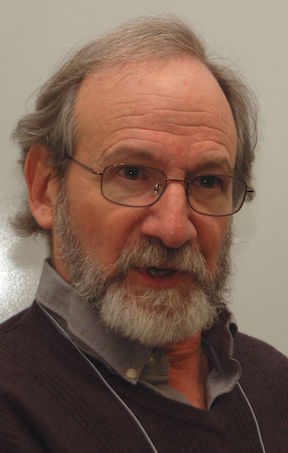Summary | Excerpt | Reading Guide | Reviews | Beyond the Book | Read-Alikes | Genres & Themes | Author Bio

This article relates to The Hours Count
Americans Julius and Ethel Rosenberg, accused of being Soviet spies, are at the center of Jill Cantor's novel, The Hours Count. After their marriage in 1939 the Rosenbergs moved to New York City's Knickerbocker Village where they lived with their two sons, Michael and Robert (renamed John and Richie in the book), until their arrests on charges of espionage in 1950. When Julius and Ethel were executed on June 19, 1953, their young sons were left orphaned. What became of them?
 After Ethel's arrest, the boys lived for a short time with their maternal grandmother, Tessie Greenglass, but she then placed them with the Hebrew Children's Home. Later, Sophie Rosenberg, their paternal grandmother, took them in. But after their parents were executed, Rosenberg felt unable to keep the boys, and no other family members opened their homes to them. With the "Red Scare" still going strong, the families may have been concerned about guilt by association.
After Ethel's arrest, the boys lived for a short time with their maternal grandmother, Tessie Greenglass, but she then placed them with the Hebrew Children's Home. Later, Sophie Rosenberg, their paternal grandmother, took them in. But after their parents were executed, Rosenberg felt unable to keep the boys, and no other family members opened their homes to them. With the "Red Scare" still going strong, the families may have been concerned about guilt by association.
The children's lives were unsettled for a while: they lived with family friends, in a shelter, and at one point in an orphanage. Finally, a childless couple named Abel and Anne Meeropol adopted the boys, who took the Meeropol name, which they still use.
 Michael, the oldest, was ten when his parents died. Unlike his fictional counterpart, John, Michael did not have a socialization disorder as a child. He would later attend the University of Wisconsin at Madison where he received his doctorate in economics in 1973. He went on to become a college professor. He married and had two children. His daughter, Ivy, produced a documentary titled Heir to an Execution, which details what happened to her infamous grandparents.
Michael, the oldest, was ten when his parents died. Unlike his fictional counterpart, John, Michael did not have a socialization disorder as a child. He would later attend the University of Wisconsin at Madison where he received his doctorate in economics in 1973. He went on to become a college professor. He married and had two children. His daughter, Ivy, produced a documentary titled Heir to an Execution, which details what happened to her infamous grandparents.
Robert was only six years old when the executions took place. He became a lawyer, married, and had two daughters. In 1990, he founded the Rosenberg Fund for Children, an organization that provides support for children whose parents have been "harassed, injured, jailed, lost jobs or died in the course of their progressive activities."
 Michael and Robert have remained vocal about their feelings regarding their parents' treatment. In the 1970s, they successfully sued the government to have previously withheld documents about their parents' case unsealed. They co-wrote the 1975 book We Are Your Sons: The Legacy of Ethel and Julius Rosenberg. Robert released his second book about his family, titled An Execution in the Family: One Son's Journey, in 2003, the 50th anniversary of his parents' deaths.
Michael and Robert have remained vocal about their feelings regarding their parents' treatment. In the 1970s, they successfully sued the government to have previously withheld documents about their parents' case unsealed. They co-wrote the 1975 book We Are Your Sons: The Legacy of Ethel and Julius Rosenberg. Robert released his second book about his family, titled An Execution in the Family: One Son's Journey, in 2003, the 50th anniversary of his parents' deaths.
Today, Michael is 73, and Robert is 69.
Michael and Robert Meeropol, courtesy of Ladybud
Michael Meeropol, courtesy of Thomas Good
Robert Meeropol, courtesy of Jmabel
Filed under People, Eras & Events
![]() This "beyond the book article" relates to The Hours Count. It originally ran in November 2015 and has been updated for the
August 2016 paperback edition.
Go to magazine.
This "beyond the book article" relates to The Hours Count. It originally ran in November 2015 and has been updated for the
August 2016 paperback edition.
Go to magazine.
Beliefs are what divide people. Doubt unites them
Click Here to find out who said this, as well as discovering other famous literary quotes!
Your guide toexceptional books
BookBrowse seeks out and recommends the best in contemporary fiction and nonfiction—books that not only engage and entertain but also deepen our understanding of ourselves and the world around us.